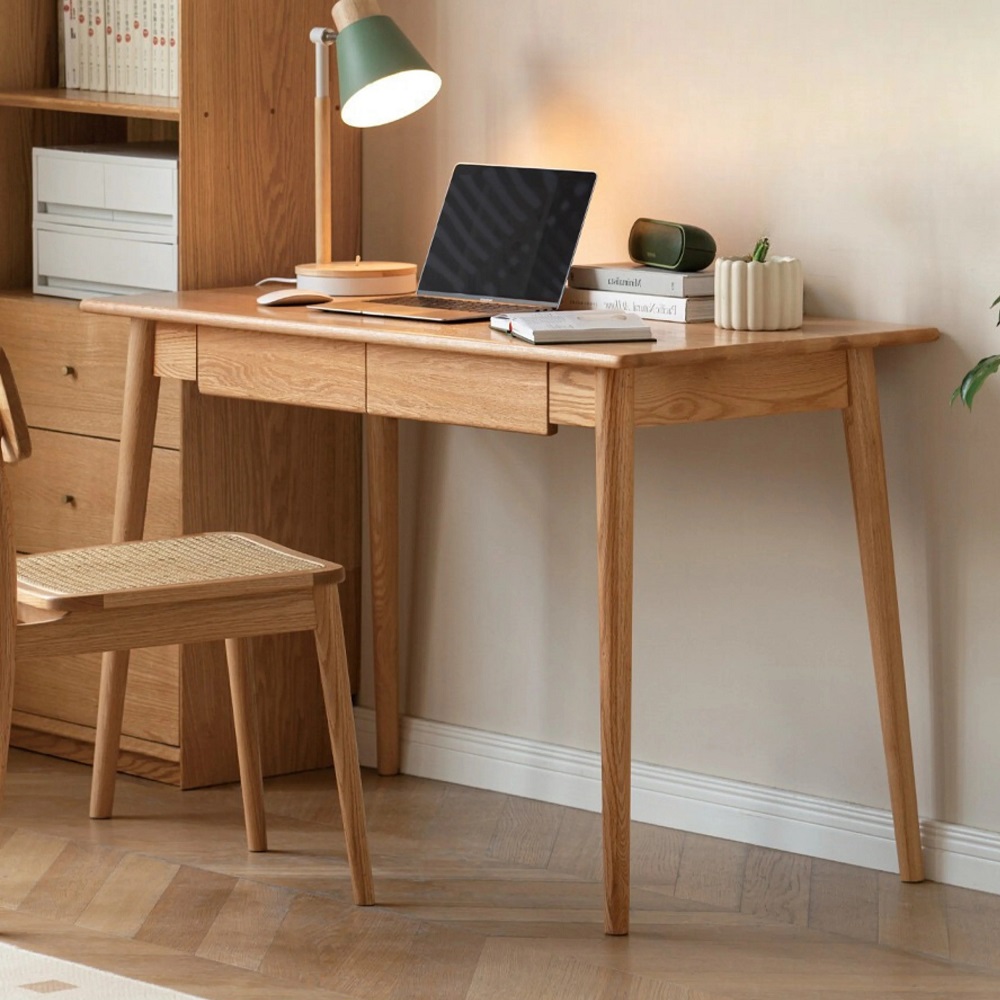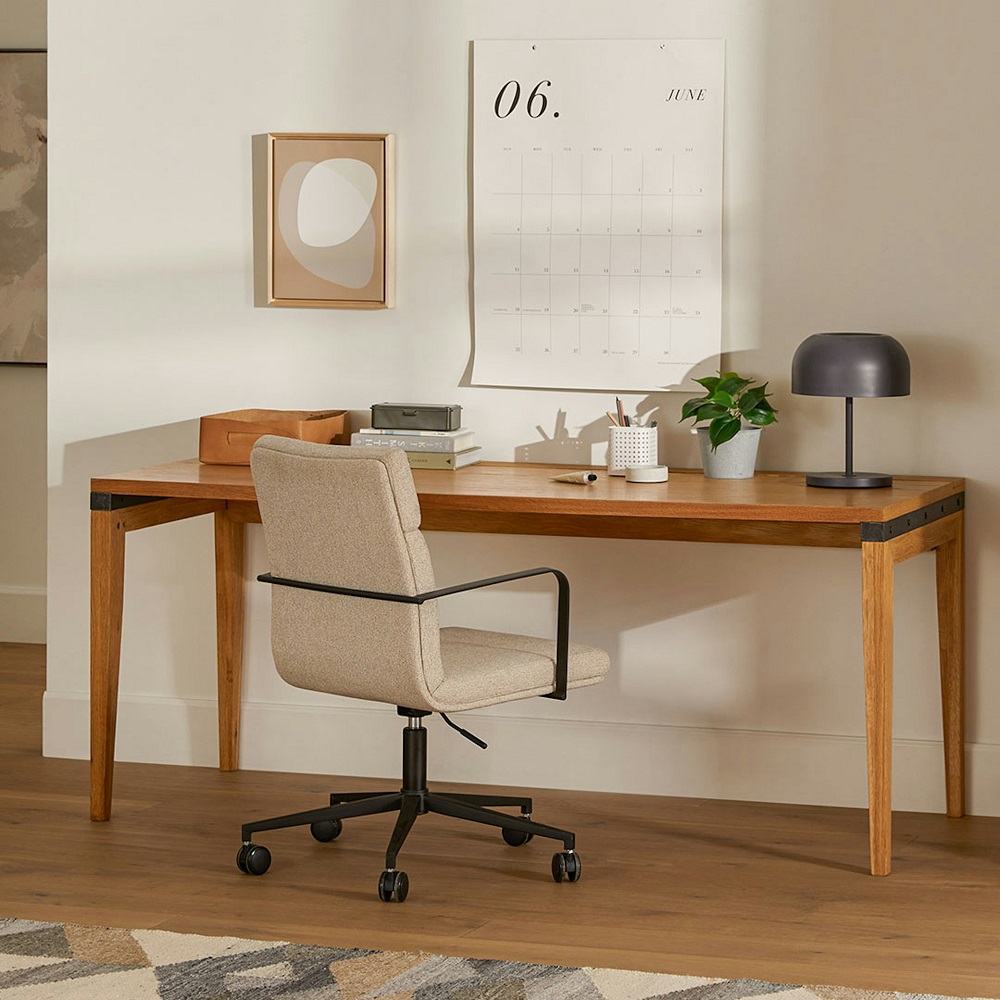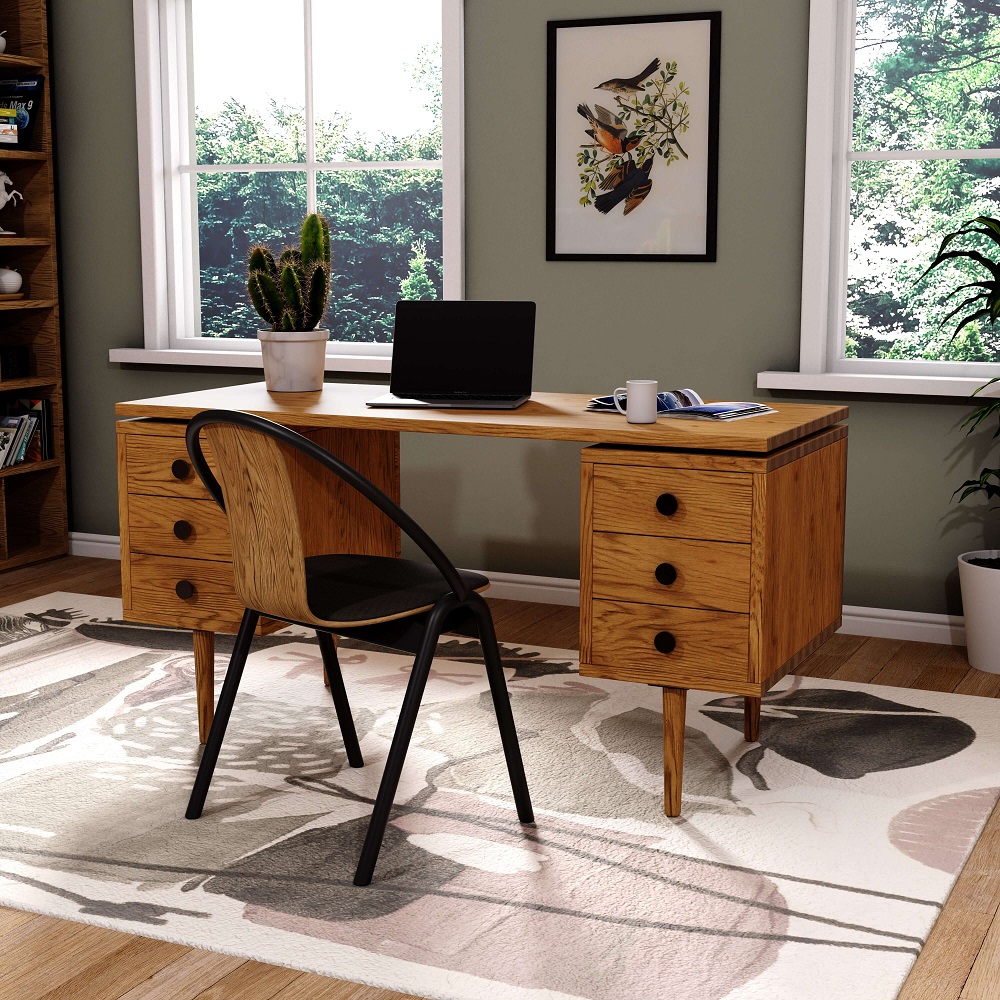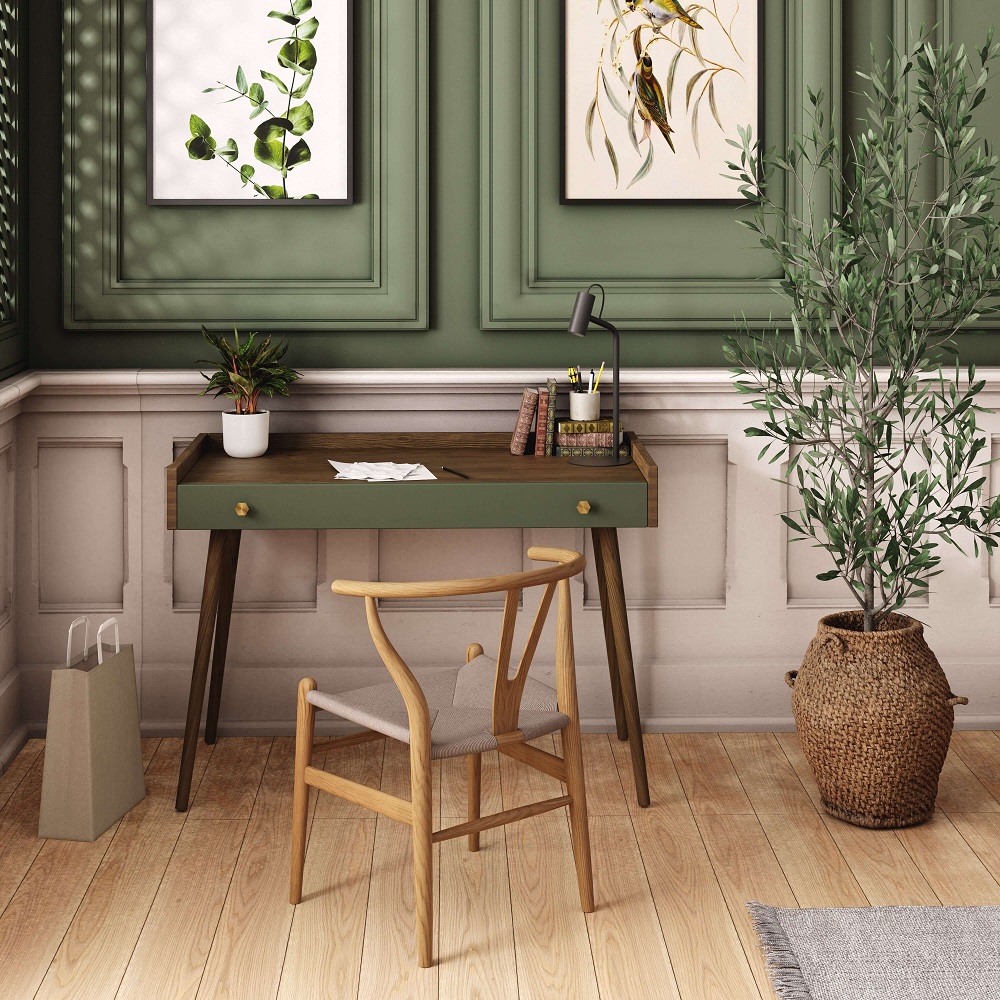The Rise of Eco-Friendly Furniture in the Modern Office
Eco-friendly furniture is becoming a staple in today’s office environments. More companies are recognizing the importance of sustainability. They aim to reduce their carbon footprint. This shift in values has led to an increased demand for furniture that doesn’t harm the environment. A key player in this green movement is the wooden office desk.
This type of desk supports eco-conscious initiatives without compromising on style or function. The wooden office desk stands out for its ability to be both durable and recyclable. It is crafted from renewable resources, and its natural aesthetic brings warmth to the workplace. For modern offices, choosing a wooden desk signals a commitment to the planet and employee wellbeing.
The trend is clear. Offices are opting for furniture that aligns with their values. They favor products with a clear, sustainable lineage. The wooden office desk meets this demand head-on. It provides a practical, stylish solution that benefits both the environment and the office aesthetic. With its rise, we see a brighter future for environmentally responsible office design.

Essential Features of a Sustainable Wooden Desk
When it comes to the essential features of a sustainable wooden office desk, there are several key aspects to consider. The following elements not only ensure that the desk you choose or the designs you draft for 2025 are eco-friendly but also cater to longevity and practicality.
Sourced from Certified Sustainable Forests
To start with, the wood used should come from well-managed forests. These forests get certifications for following strict environmental standards. Such sourcing supports healthy ecosystems and promotes forest renewal.
Use of Non-Toxic Finishes and Adhesives
Next, consider finishes and adhesives that are non-toxic. This means that they do not release harmful chemicals into the air. This keeps office spaces safe and aids in indoor air quality.
Recyclability and End-of-Life Disposal
A sustainable wooden office desk should also be easy to recycle. At the end of its life, the desk can be disassembled. Materials can then be reused or composted.
Durability and Repairability
Durability is fundamental. A desk that lasts prevents the need for frequent replacements, which saves resources. Also, if parts can be easily repaired, the desk’s life extends further.
Minimalist and Functional Design
The design should be minimalist. This reduces waste during production and gives the desk timeless appeal. Also, it is essential that the desk remains functional, serving all necessary purposes of the worker.
Energy-Efficient Manufacturing Processes
Lastly, the production process of the wooden office desk should conserve energy. Manufacturers should aim for operations that minimize carbon emissions.
These features create a balance between eco-friendliness and user needs. They define what it takes to make a truly sustainable wooden office desk, suited for the modern office of 2025.
Popular Types of Wood for Sustainable Desks
Choosing the right wood is critical for sustainable desk design. Different woods offer various benefits. Some popular options stand out for their eco-friendliness and durability.
- Bamboo: Not a true wood but a fast-growing grass, bamboo is highly sustainable. It regrows quickly after harvesting. This makes it a top choice for eco-conscious buyers.
- Reclaimed Wood: Utilizing reclaimed wood helps reduce waste. Old buildings or furniture provide the material. This wood has unique character and history.
- Rubberwood: Rubberwood trees are tapped for latex, then harvested for timber. After their productive life for latex ends, they become valuable material for desks.
- Maple: Maple trees grow abundantly in North America. They make sturdy desks that last. Using local woods can reduce the environmental impact of transportation.
- Oak: Oak is known for its strength and longevity. It also sources easily from sustainable forests. An oak wooden office desk can endure heavy use.
These woods not only ensure the production of a wooden office desk is sustainable. They also contribute to the desk’s longevity and aesthetic beauty. The choice of wood impacts the desk’s final look and its environmental footprint. When you select a desk for your office, consider these sustainable options.

Innovative Design Trends for Wooden Office Desks in 2025
The world of wooden office desks is evolving rapidly, and by 2025, several design trends are set to make a bold statement. These trends reflect a blend of innovation, sustainability, and modern aesthetics that cater to a forward-thinking workplace.
- Adjustable and Ergonomic Designs: Employees’ comfort is paramount, so desks that adjust to various postures are vital. Think sit-stand desks, adjustable heights, and designs that promote good posture.
- Integrated Technology Solutions: Desks will likely come with built-in charging ports, wireless technology docks, and seamless cable management. This integration supports the tech needs of today’s professionals.
- Modular Components: Flexibility in design allows for desks to grow with the company. With modular parts, a wooden office desk can be reconfigured as needs change.
- Smart Desks: Expect desks with sensors and smart features. These could track usage, adjust automatically for comfort, or even remind you to stand or stretch.
- Personalization: Individual expression is becoming more important. Desks that offer customizable components or finishes will be fashionable.
- Eco-conscious Materials: Alongside wood, designers will incorporate materials like recycled metals or bioplastics. These complement the sustainability of a wooden office desk.
- Compact Footprint: Space-saving designs will dominate, especially for urban offices with limited room. Thoughtful, compact desks will be designed to maximize workspace without crowding.
By embracing these trends, wooden office desks will not only look appealing and modern. They will also meet the high demands for functionality and sustainability. Offices in 2025 can expect desks that are smart, adaptable, and conscious of the environment.
The Role of Craftsmanship in Sustainable Desk Production
Craftsmanship plays a key part in making sustainable wooden office desks. Skilled artisans use their hands and tools to create desks. This personal touch can lead to higher quality and longer-lasting furniture. Here’s why craftsmanship is important:
- Quality and Attention to Detail: Craftsmen take pride in their work. They check every joint and finish with great care. This results in desks that are strong and well-made. Better quality means desks last longer, reducing the need for new resources.
- Customization: Craftsmen can tailor a wooden office desk to specific needs. This includes size, shape, and features like drawers or shelves. Custom desks can fit perfectly into an office, avoiding waste.
- Repairability: A desk made by a craftsman can often be repaired rather than replaced. This is because parts are not mass-produced. If a part breaks, a craftsman can easily make a new one.
- Local Sourcing: Craftsmanship often involves using local wood and materials. This cuts down transportation emissions. It also supports local economies and sustainable forestry.
- Reduced Waste: Mass production can lead to lots of waste. Craftsmanship can be more precise. Craftsmen use only what they need, reducing leftover materials.
- Cultural Heritage: Craftsmanship keeps traditional techniques alive. These methods can be more eco-friendly than modern mass production.
Artisan-produced wooden office desks offer a special combination of durability, style, and sustainability. By valuing the role of craftsmanship, offices show a commitment to quality and the planet.

Balancing Functionality and Aesthetics in Desk Design
When designing a wooden office desk, it’s essential to balance functionality with aesthetics. Here’s why and how:
- Practicality First: A desk must first serve its purpose. It should fit workspace gadgets and provide ample work area.
- Sleek Design: Aesthetics follow function. A beautiful desk can inspire and uplift a workspace.
- Ergonomics: Comfort is key. Desks should support good posture and ease of use.
- Natural Look: Wood offers a warm, organic touch. This can enhance the mood and office vibe.
- Versatility: Desks must fit various office layouts. They should blend well with other furniture pieces.
- Timeless Style: Opt for a classic look to avoid frequent updates. This can also appeal to a broad audience.
By focusing on both utility and beauty, wooden office desks not only serve their practical purpose but also contribute to a pleasing office environment. They highlight a company’s commitment to quality and sustainability without compromising on style.
The Impact of Sustainable Desks on Workplace Wellbeing
Sustainable wooden office desks do more than save trees. They impact workers’ health and morale positively. Here’s how:
- Enhanced Air Quality: Desks with non-toxic finishes improve office air. Clean air is crucial for employee health.
- Natural Aesthetics Boost Mood: Wood’s natural beauty elevates mood. A pleasant workspace increases job satisfaction.
- Ergonomic Benefits: Well-designed desks prevent discomfort. They help avoid strain from poor posture.
- Acoustic Comfort: Wooden furniture reduces noise levels. Quieter environments reduce stress, aiding concentration.
- Emotional Connection: Sustainable choices reflect company values. Employees feel proud of their eco-friendly workplace.
- Organic Materials: Wood can improve mental wellbeing. Studies show natural elements in offices promote calmness.
By focusing on wellbeing, offices create a healthier, happier workforce. An investment in sustainable furniture is an investment in people.
Integrating Technology with Wooden Office Desk Designs
As workplaces evolve, the need for integrating technology with furniture is paramount. For wooden office desks, this means adapting to modern requirements while maintaining environmental values. Here are key considerations for blending tech into sustainable desk designs:
- Smart Cable Management: Desks should have built-in channels or docks to organize wires neatly.
- Wireless Charging: Including wireless charging stations allows for a clutter-free workspace.
- Adjustability and Health Monitoring: Tech-integrated desks could offer adjustable heights with digital controls, or even health-monitoring features to prompt movement.
- Eco-Friendly Power Solutions: Solar-powered or hand-cranked charging ports can add a sustainable touch.
- Tech-Ready Materials: While keeping the desk primarily wooden, certain components might be designed to accommodate technology better.
By considering these features, wooden office desks will cater to the future’s tech-savvy yet environmentally-conscious professionals. They’ll stand at the intersection of tradition and innovation, melding natural materials with the digital age’s demands.

